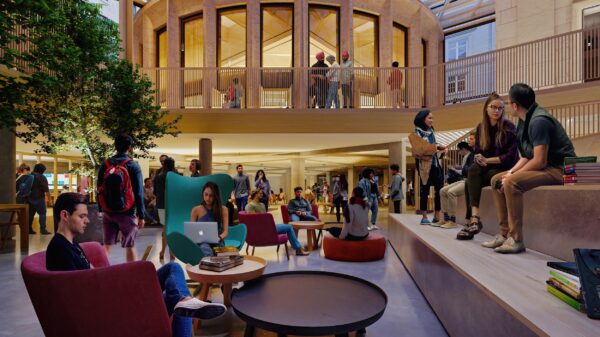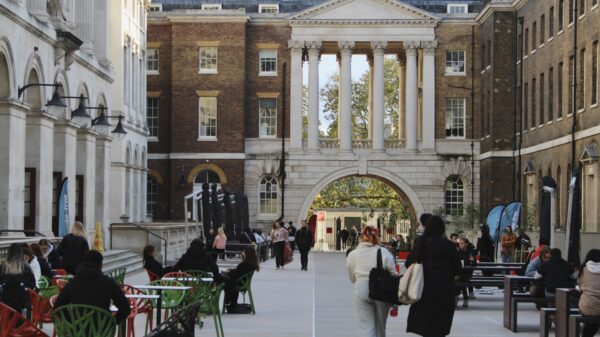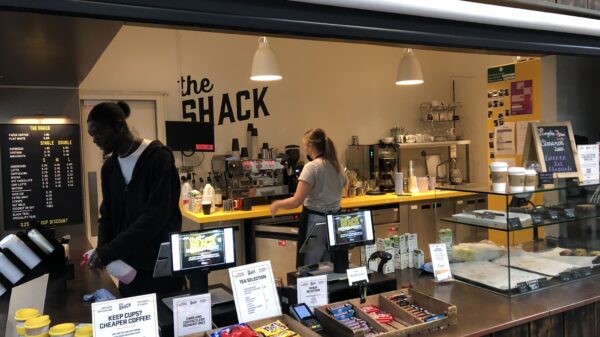Roar writer Helena Kudiabor on how the robot revolution may reach your local coffee shop and if the Covid-19 pandemic has accelerated this change
Have you ever left a coffee shop feeling frustrated by an incorrect order, incredibly long waiting times, or a barista who wasn’t the nicest? All of these problems could be things of the past, with the increasing rise of robot baristas in cafes worldwide.
Cafes with robot baristas are slowly beginning to open
Cafe X is a Robotic Coffee bar located in San Francisco, United States, which is operated solely by a robot. Costing $25,000 (roughly £18,000), the robot barista makes most popular drinks and about 120 cups of coffee an hour. The robot has a robotic arm created by Japanese automaker Mitsubishi and can perform predefined actions such as grabbing cups, pouring milk and placing the cup in front of the customer. A cafe in Singapore introduced a similar venture, with a robot that can make 200 drinks an hour and play games with customers while they wait. A human is only needed for cleaning coffee but future designs even offer self cleaning facilities. A Japanese company even created a “friendly” robot barista that can greet customers at the door and feature different facial expressions.
Robot baristas are seen as the perfect solution for coffee companies. The coffee industry is a large one, with over 2 billion cups of coffee consumed annually worldwide and the industry is always looking for a way to maximise profits and improve customer satisfaction. Robot baristas are hailed by many in the industry as a perfect solution. Briggo, a company with coffee bars all over Texas in the United States, claims to “eliminate lines, counter confusion and misspelled names.” In a culture where the aim is to get things done as quickly and efficiently as possible, receiving your coffee in mere minutes would be the dream. Robot baristas eliminate the hassle of getting the order wrong as well as the general inconsistency of drinks between branches of the same coffeehouse chain. One huge perk for companies looking to introduce this venture would be the decreased reliance on human workers and the scramble to find a replacement when workers are off sick or on holiday
Robot baristas and social distancing
The use of robot baristas has been particularly timely with the Covid-19 pandemic. Many industries have looked to using robots as a way to reduce staff numbers, with a hospital in Singapore having robots deliver medication and meals to Covid-positive patients. To find out a bit more about the general public’s view of robot baristas, I sent out a survey to 29 of my peers aged 18-55 and asked for their opinions. Over 60% of those surveyed said that having a robot barista would make them feel safer about being inside a cafe, and a cafe in South Korea has used robot baristas for this exact purpose. Only one member of staff is needed, making it easier to facilitate social distancing. Despite the fact that life is slowly beginning to return to normal with the rollout of vaccinations, the pandemic has made the general population reconsider previous hygiene habits, and many may want to stay further away from others during winter flu season. Many scientists have even said the next pandemic is rapidly approaching, so it’s good to be prepared.
Robot waiters and waitresses
It’s not just coffee shops who are interested in the venture, but fast food companies as well. Jack in the Box, an American fast food chain, is now seriously considering swapping cashiers with robots. The CEO of the company, Leonard Comma, claims automation “just makes sense” and now finds cashiers too expensive as the minimum wage rises. You may have read this article while thinking that robot baristas are such a big leap into the future, but technology is already present in so many fast food restaurants. For example, many fast food restaurants have kiosks and mobile ordering, to help reduce queues. Restaurant chains now argue a shift to technology is vital as they struggle to convince workers to stay in repetitive jobs for minimum wages. Many believe this change is part of a long term solution, with Andy Putzer, the CEO of Carl’s Jr. in the USA predicting “you’re going to see automation not just in airports and grocery stores, but in restaurants”.
Robot barista’s impact on the job market
Robot baristas may seem a perfect solution to many of the common complaints surrounding the food industry but many have expressed concern. Although cutting down on labour costs is a bonus for food chains, many are concerned about the effect this would have on employees who would then lose their jobs. A 2017 report found that between 6 and 7.5 million retail jobs could become automated within the next few years, creating a whole host of “stranded workers”. The COVID-19 pandemic has led to a large rise in unemployment worldwide, meaning those who lose their jobs would find it difficult to find new employment in a poor job market. Over 70% of those surveyed said they disagree with the idea of robot baristas due to job loss. Many were also critical of the idea of robot baristas a whole, for a variety of different reasons. While a few described the idea as “intriguing” and “interesting”, the majority described the experience as “unsettling” or “impersonal”.
Robot baristas and human interaction
One prominent critique of robot baristas was the loss of human interaction, particularly in our modern world where everything is slowly becoming digitised. While one person said the loss of human interactions would make for a less awkward experience, the majority said they would miss interacting with the baristas and “a lack of the personal touch or the chat”. Another shared their personal connections with the baristas in their local cafe so “it’s so nice to get to know the staff members and be able to tip them”. A few saw the rise of robot baristas as being symbolic of a future society with an over-reliance of technology, and were unsure as to what it would mean for humans and human interaction. One person was particularly concerned that if robot baristas became the norm, “we would gradually lose our ability to interact and make human connections.”
The Covid-19 pandemic has accelerated the digitisation of everyday life, and the rise of robot baristas are emblematic of this change. Many would love receiving our morning latte a little faster, but a few are unsure if the inevitable job losses and decrease in human interaction are worth a simple convenience.
This is a solutions journalism article produced during the 2021 SoJourn write-a-thon. Solutions journalism is investigative reporting on responses to social issues. Learn more about it here.


















